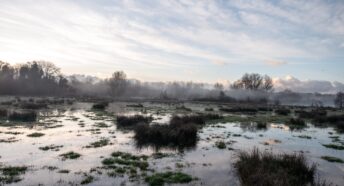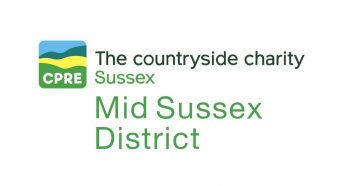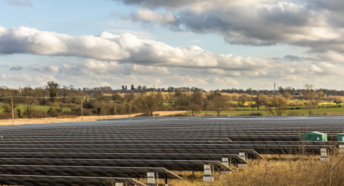Aviation and the environment: hear this free talk on your doorstep by a world expert

With the issue of airport expansion still very much alive, you might be interested in a free talk on aviation being held just over the county border in Surrey.
The Impact of Aviation Growth on Local Communities and Climate Change is being given by Tim Johnson, director of the Aviation Environment Federation (AEF), in Lingfield.
Organised by Communities Against Gatwick Noise and Emissions (CAGNE) and the Kent and Surrey branches of CPRE, the talk is being hosted by Lingfield Parish Council.
The AEF is a non-governmental organisation dedicated to tackling the environmental impacts of aviation, while Johnson has almost 30 years’ expertise in the aviation, environmental and planning field.
He is a lead representative for the international environmental NGOs at the United Nations’ International Civil Aviation Organisation, where he co-leads groups set up by the Committee on Aviation Environmental Protection to develop the standards and recommended practices of reducing aircraft noise and emissions.
He is also a member of the Department for Transport’s external advisory group and represents community and environmental interests on the DfT’s airspace modernisation board and the Airspace and Noise Engagement Group.
As if all that were not enough, Johnson sits on Sustainable Aviation’s advisory panel and the Airports Council International airport carbon accreditation advisory board.
In short, he a bit of an expert!
AEF was founded in 1975 as a voice for community groups impacted by airports, airfields and flight paths. Today it represents more than 50 organisations throughout the UK.
The Impact of Aviation Growth on Local Communities and Climate Change is being held on Wednesday, June 12 (7.30pm-9pm), at Lingfield and Dormansland Community Centre, High Street, Lingfield, Surrey RH7 6AB.
If you would like to attend, you can email Liz at liz@lizlockwood.co.uk or phone 01342 834282.
- A number of important documents have yet to emerge. For example, a rigorous transport plan and a finalised air-quality assessment. The latter is critical given that allocations at Teynham will feed extra traffic into AQMAs.
- There seems to be no coherent plan for infrastructure delivery – a key component of the plan given the allocations being proposed near the already crowded Junction 7.
- There seems to have been little or no cooperation with neighbouring boroughs or even parish councils within Swale itself.
The removal of a second consultation might have been understandable if this final version of the plan were similar to that being talked about at the beginning of the consultation process. It is, however, radically different in the following ways:
- There has been a major shift in the balance of housing allocations, away from the west of the borough over to the east, especially around the historic town of Faversham. This is a move that raises many concerns.
- A new large allocation, with accompanying A2 bypass, has appeared around Teynham and Lynsted, to which we are objecting.
- Housing allocations in the AONB around Neames Forstal that were judged “unsuitable” by the council’s own officers have now appeared as part of the housing numbers.
- Most of the housing allocations being proposed are on greenfield sites, many of them on Grade 1 agricultural land – a point to which we are strongly objecting.
Concerns about the rush to submit the plan
The haste with which the plan is being prepared is especially worrying given the concentration of housing in Faversham. If the town is to take a large amount of new housing, it is imperative that the policies concerning the area are carefully worked out to preserve, as far as possible, the unique nature of the town. The rush to submit the plan is likely to prove detrimental.
As Swale does not have a five-year land housing supply, it is open to speculative development proposals, many of which would run counter to the ideas contained in the current plan. Some are already appearing. This is a common situation, and one that, doubtless, is a reason behind Swale’s haste.
Our overriding fear, however, is that this emphasis on haste is ultimately going to prove counterproductive. This is because it is our view that the plan, in its current form, is unlikely to pass independent examination. We are urging Swale to listen to and act upon the comments being made about the plan and to return the plan to the council with appropriate modifications before submitting it to the Secretary of State.
Essentially, this means treating the current consultation not as the final one but as the ‘lost’ second consultation.
The consultation ends on Friday 30 April and we strongly urge residents to make their opinions known if they have not already done so.
Further information








